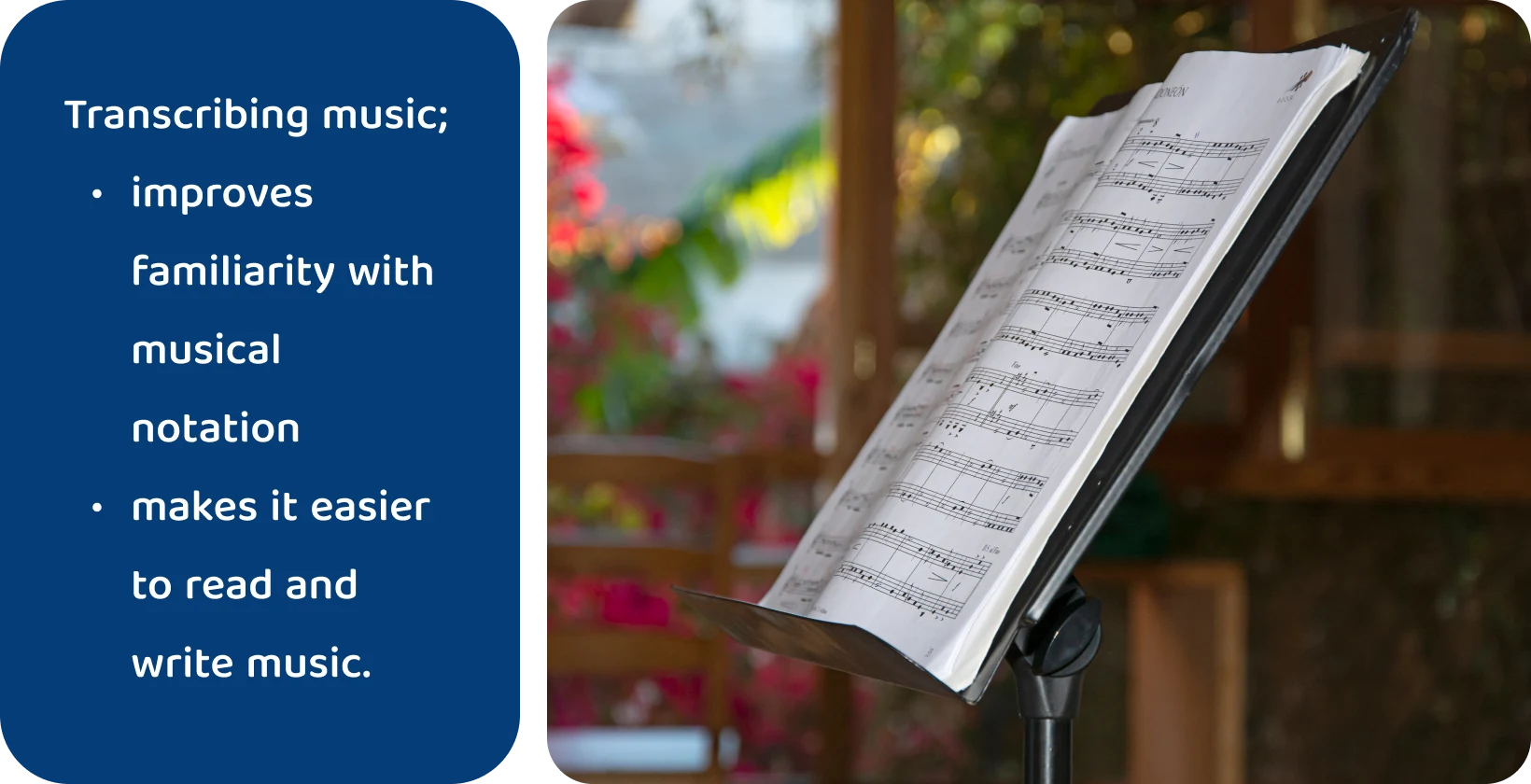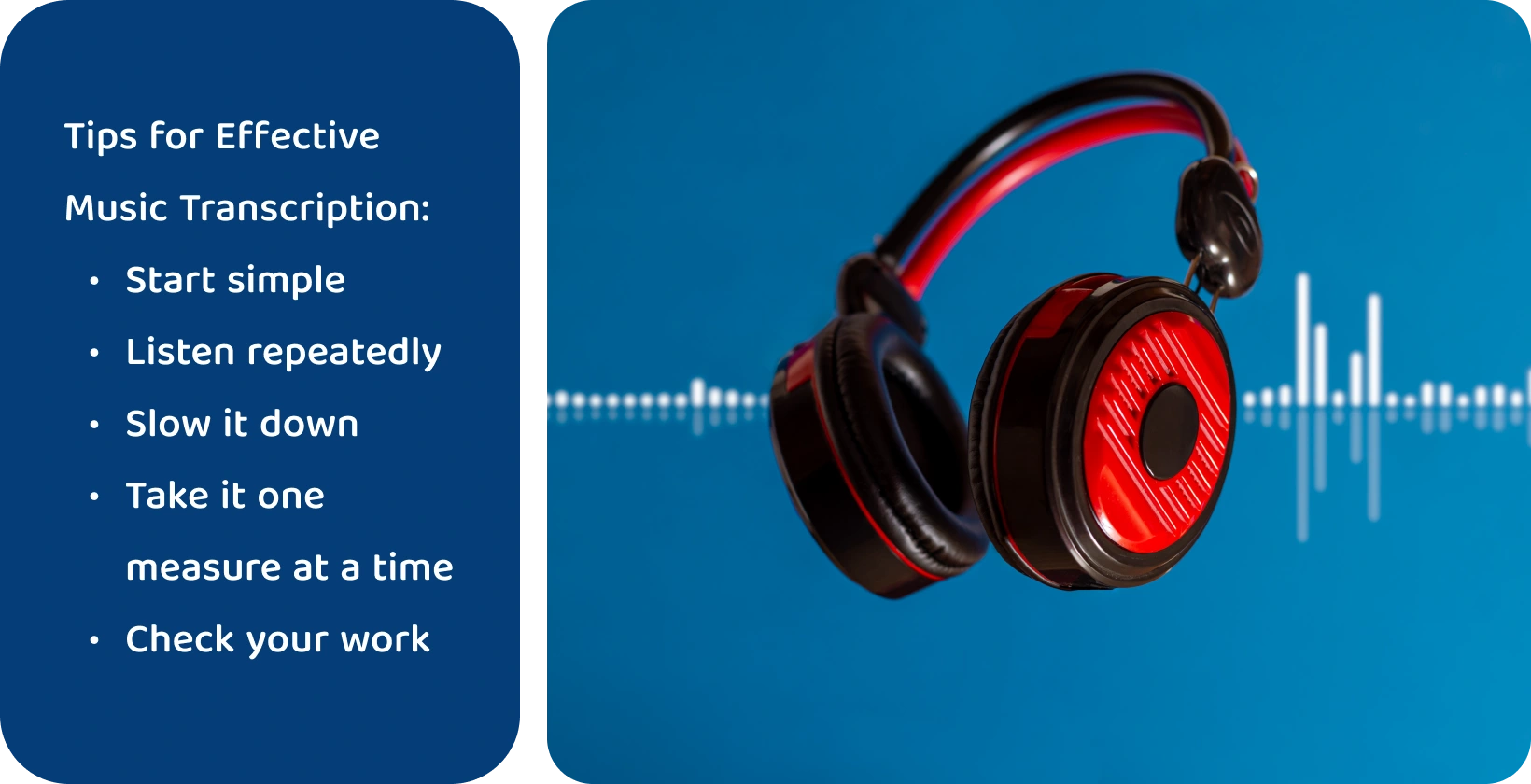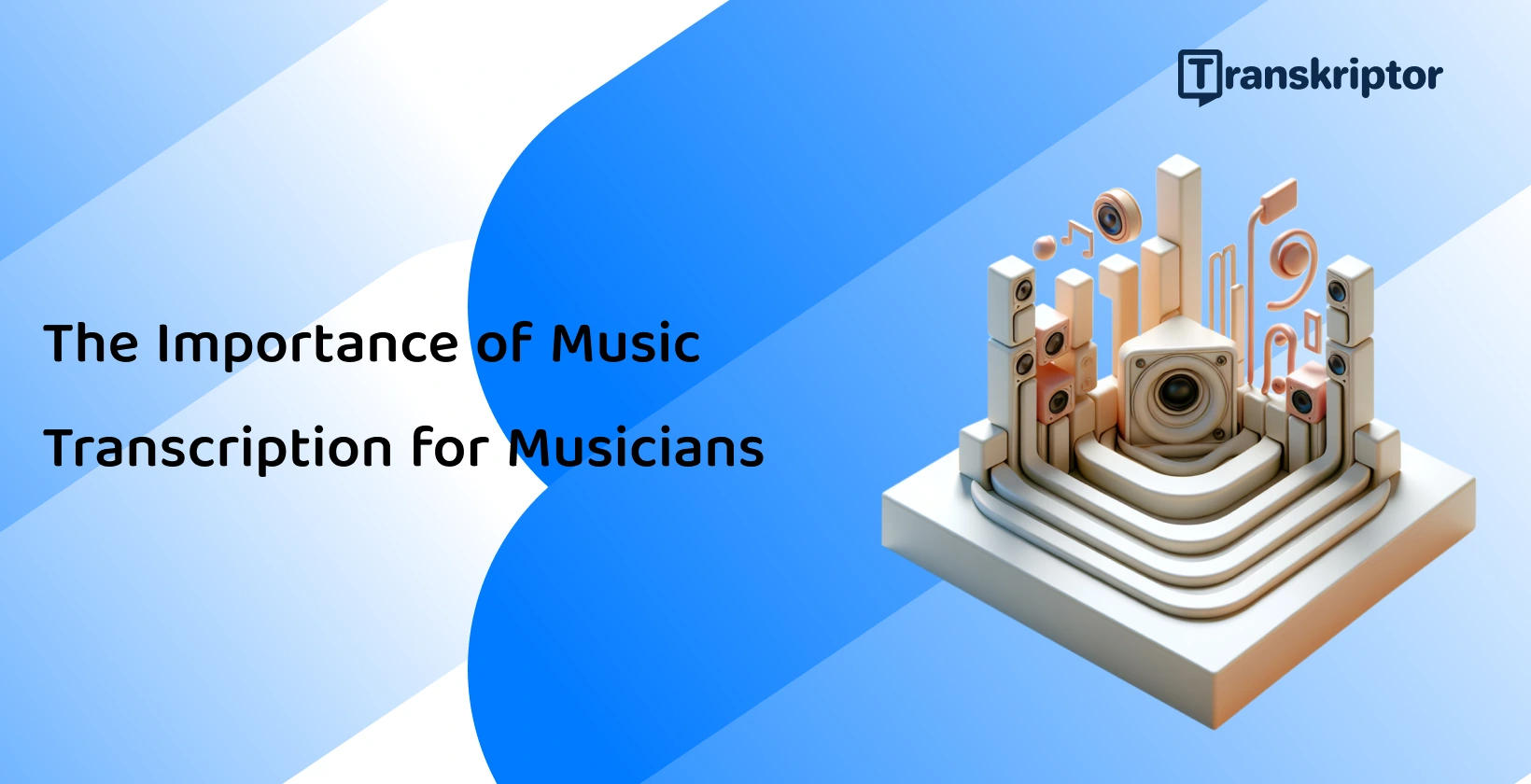What is Music Transcription?
At its core, music transcription is the process of notating a piece of music that is heard - whether it be a simple melody or a complex orchestral score - and converting it from audio format into written form, typically in musical notation. Transcribing music doesn’t just allow musicians to study and analyze the compositions of others, but also offers valuable insights into the structure, harmony, rhythm, and technique employed by the composers and performers.

Enhancing Musical Skills Through Transcription
So, what makes transcribing music a valuable use of your time as a musician? It’s simple - when you transcribe music, you're not just copying notes; you're immersing yourself in the piece, and this process helps to enhance your aural skills by forcing you to listen closely to the nuances of the music. With a better understanding of everything from pitch and duration to dynamics, it's a practice that sharpens your ear, all the while enabling you to identify chords, intervals, and rhythms more accurately.
Transcribing music also improves your familiarity with musical notation, making it easier for you to read and write music, and this skill is invaluable; whether you're learning new pieces, composing your own music, or collaborating with other musicians, it bridges the gap between hearing music and understanding it on a deeper level.
Developing Technique and Improvisation
Additionally, to transcribe audio to text or transcribe pieces by accomplished musicians can also be a powerful tool for technical development; by analyzing and playing the transcribed music, you’ll be able to benefit from a direct insight into the technical prowess and stylistic nuances of the original performers. While this might not sound that impressive upfront, it can inspire you to incorporate new techniques into your playing, which can ultimately enhance your versatility and expressiveness.
Moreover, transcription is fundamental for improvisation; when you transcribe solos, you're essentially collecting musical ideas and phrases that you can adapt and use in your improvisations; this expands your musical vocabulary and provides you with a wealth of ideas that you can draw upon during even the most off-the-wall performances.
Preserving Musical Knowledge and Heritage
It’s also worth considering the historical aspect; music transcription plays a crucial role in preserving musical knowledge and heritage, and many pieces of music - especially in genres with strong oral traditions like jazz and folk music - would be lost to time without transcription. If you want to ensure that your pieces can be studied, performed, and enjoyed by future generations, it’s worth notating these works.
Plus, transcribing is a language in and of itself, which means that notation can even facilitate the sharing of music across different cultures and musical traditions, promoting a deeper understanding and appreciation of the world's musical diversity.
Tools and Techniques for Music Transcription
What makes 2025 different from former musical eras is technology; today, musicians have access to a wide array of tools and resources to aid in the transcription process and preserve their works for years. Software like MuseScore offers powerful features for notating music, playing back transcriptions, and even transcribing audio to text. For detailed guidance on using such tools, consider taking a look at our MuseScore audio transcription guide on our blog, for tips and tricks on how to streamline your transcription workflow.

Tips for Effective Music Transcription
So, whether you’re a beginner or seasoned professional and you're looking to improve your transcription skills, here are a few of our expert tips to keep in mind:
- Start simple: As always, begin with straightforward pieces and gradually work your way up to more complex music - this allows you to build a foundational understanding before taking on more complex projects.
- Listen repeatedly: Play the piece numerous times to catch all the details before you start notating.
- Slow it down: Use software to slow down the music without altering the pitch, making it easier to hear fast passages.
- Take it one measure at a time: Focus on transcribing small sections of the music accurately before moving on.
- Check your work: Play back your transcription to ensure it matches the original recording.
Ultimately, learning to transcribe music is a highly valuable skill that can quite literally transform your understanding and appreciation of music, especially with inclusive education transcriptions enhancing the learning experience. And with so many different tools at your disposal to take advantage of, there’s no reason not to give it a go! If you're a student, you can even benefit from our transcription for education plan, making it easier and more affordable to enhance your transcription skills and deepen your musical understanding. Aside from being a practice that actively enhances your technical abilities, it also helps deepen your connection to the music you love. So - what’s not to love?

